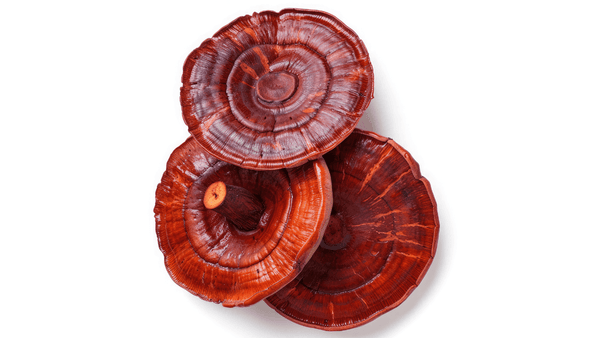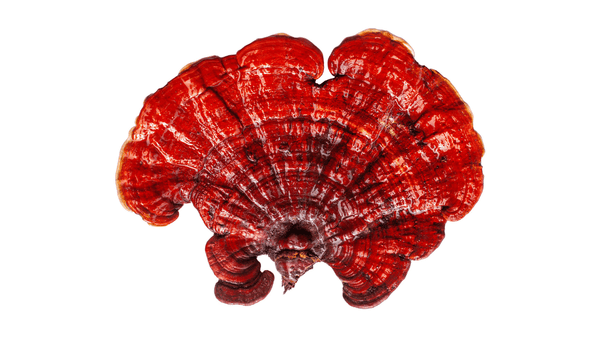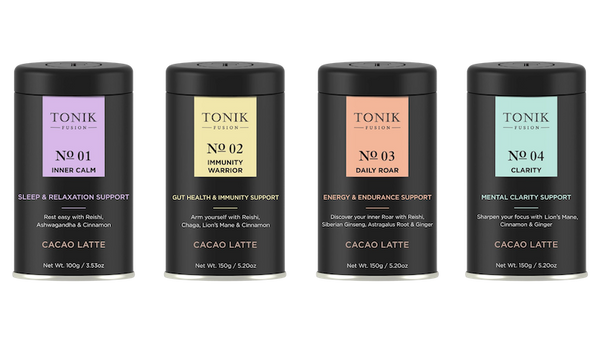Is Reishi Good for Your Kidneys?
My journey into the world of adaptogens began with a simple quest for wellness, leading me to discover the myriad benefits of Reishi, not just for the mind but potentially for the kidneys too.
Reishi mushrooms are renowned for their ability to support overall health, including kidney function. They contain antioxidants that help combat oxidative stress and support kidney health.
While studies are still evolving, preliminary research suggests that Reishi can help protect the kidneys from damage and may improve blood flow to this vital organ.
What is Reishi and How Does It Work?

Reishi, scientifically known as Ganoderma lucidum, is an adaptogenic mushroom that helps the body resist the damaging effects of stress and restore normal physiological functioning.
Packed with a complex array of natural compounds including polysaccharides, triterpenoids, and peptidoglycans, Reishi supports immune health, reduces inflammation, and has antioxidant properties.
How Does Reishi Affect Kidney Function?
- Antioxidant Protection: Reishi contains ganoderic acids, potent antioxidants that help protect the kidneys from oxidative stress caused by environmental toxins and aging. These compounds shield kidney cells from damage and can enhance renal function.
- Anti-inflammatory Effects: The anti-inflammatory properties of Reishi can be particularly beneficial for managing chronic kidney conditions such as nephritis. By reducing inflammation within the kidneys, Reishi helps maintain healthy kidney function and may slow the progression of kidney diseases.
Does Reishi Support Urinary Tract Health?
Reishi mushrooms contain compounds that may support urinary tract health by promoting kidney function and helping to flush out toxins and pathogens that can lead to infections.
Additionally, the anti-inflammatory properties of Reishi can be beneficial in reducing irritation and inflammation within the urinary tract, contributing to overall urinary wellness.
This makes Reishi a potentially valuable addition to a regimen aimed at maintaining urinary tract health.
Can Reishi Help Prevent Kidney Stones?

Research into Reishi's direct impact on preventing kidney stones is still in its preliminary stages. However, the mushroom's well-documented renal support and potential to enhance kidney function suggest it could play a beneficial role in stone prevention.
How Does Reishi Help Eliminate Toxin?
Reishi mushrooms are celebrated for their robust ability to enhance the body’s detoxification processes, crucial for optimal kidney health. By bolstering kidney function, Reishi enables these organs to filter and expel toxins from the bloodstream more effectively.
This increased detoxification efficiency reduces the kidneys' workload and decreases the accumulation of crystalline compounds that often lead to stone formation.
Ultimately, this more efficient toxin removal creates a less favorable environment for kidney stone development, thus providing a significant preventive benefit against this common renal issue.
How Reishi Contributes to Mineral Stabilization
Reishi mushrooms may play a crucial role in stabilizing mineral levels within the kidneys, an essential factor in preventing kidney stone formation.
By aiding the kidneys in maintaining a balanced concentration of minerals such as calcium and oxalate, Reishi helps prevent the conditions that typically lead to stone aggregation.
This regulatory effect on mineral balance supports overall kidney health and reduces the risk of developing stones.
Incorporating Reishi into Your Kidney Health Routine
Incorporating Reishi into your daily health routine can significantly enhance kidney function. One enjoyable way to do this is by using our cacao latte blends, which mix high-quality Reishi with other beneficial adaptogens, providing a delicious and health-supportive beverage option.

These blends are specifically designed to be both nourishing and convenient, making it easy to gain the kidney health benefits of Reishi through your daily diet.
FAQs about Kidney and Reishi
Are There Any Side Effects of Reishi on Kidneys?
While generally safe, Reishi can cause side effects like digestive upset in some people, and it's advised to consult healthcare providers for those with existing kidney conditions.
How Long Does It Take To See Benefits From Reishi On Kidney Health?
The effects of Reishi on kidney health can vary depending on individual health conditions and the dosage used. Some may notice improvements in a few weeks, while others might take longer to observe benefits.
Does Reishi Interact with Kidney Medications?
Reishi may interact with certain medications, including those used to treat kidney conditions. It's important to discuss with a healthcare provider to ensure safe use alongside prescription medications.
Is Reishi Safe for Everyone?
While Reishi is safe for most people, those with autoimmune diseases, pregnant women, and those on certain medications should consult a healthcare provider due to potential immune system effects and drug interactions.
Closing Thoughts
Whether you're interested in the general health benefits of Reishi or its specific effects on kidney health, starting with a tested blend like those offered by Tonik Fusion can be a wise choice. Visit our shop to explore our range of cacao lattes, and don't forget to take our quiz to find out which blend best suits your goals and lifestyle.